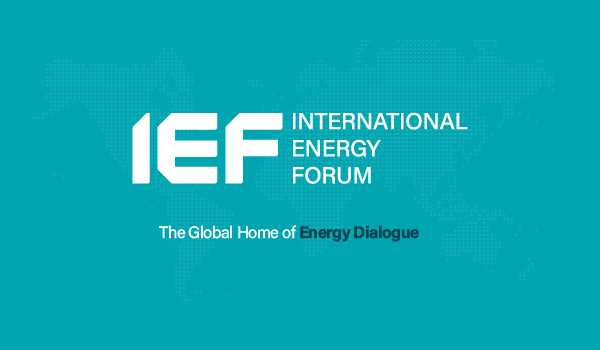Photo caption: IEF logo
The International Energy Forum (IEF) today released its report, Building Markets to Scale Carbon Management Solutions, calling attention to growing momentum behind Carbon Management Solutions (CMS) and Carbon Capture, Utilization and Storage (CCUS) in particular. While clean hydrogen and carbon markets are gaining traction, CCUS leads in shaping the emergence of integrated value chains and novel business models that are beginning to mobilize private capital and engage financial markets.
Warning that despite this recent progress, deployment remains overly reliant on public funding, the report highlights a need to shift toward market-driven strategies, supported by stronger policy frameworks and multilateral cooperation, to scale investment and speed up deployment.
“The global deployment of CCUS is gaining momentum, but to achieve meaningful impact, we urgently need broader international participation, robust system-level policy frameworks, and cross-sector investment to enable scalable and sustainable carbon management solutions,” said Jassim Alshirawi, Secretary General of the IEF. To establish carbon management as a corner stone of global energy security, sustainable development, and climate policy projects must be complemented with well-functioning markets.
“Effective carbon management depends on technological breakthroughs and successful projects but more dialogue across governments, industry, and finance communities is needed to enhance market incentives for broader business engagement. Integrating carbon management solutions more cohesively within international energy markets and governance frameworks will add momentum and facilitate more reliable, affordable, and sustainable energy transitions,” said Christof van Agt Ross, Director of Energy Dialogue at the IEF.
“Recent trends show a sharp acceleration in CCUS innovation and entrepreneurship, with more than one-third of active firms established since 2020 and half of all patent filings submitted in just the past five years,” added Ali Alsamawi, Senior Energy Analyst at the IEF. “This signals a critical window of opportunity to scale up investment and technological deployment.”
Charting the rise of CCUS enterprises, advances in CO₂ capture technology, and a surge in global patent activity, the IEF report underscores the growing need for enabling cross-border transport infrastructure and commercialisation frameworks for CO₂ capture, transport, use and storage. The report points towards the growing role of market incentives provided by voluntary and regulated carbon markets, and international mechanism such as Article 6 of the Paris Agreement and the EU’s Carbon Border Adjustment Mechanism (CBAM). Complementing project specific support with enabling frameworks to enhance market incentives for investment is essential to build the market momentum that scaling CMS requires, and drive decarbonisation in hard-to-abate sectors forward.
As global energy demand continues to grow, the IEF calls for comprehensive and inclusive strategies that strengthen energy security and system resilience while supporting affordable energy access and emission reduction goals.



